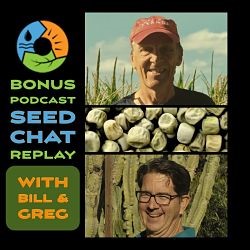816: Aaron Zaretsky on Creating Public Markets
Imagine a place not that unlike a modern-day mall, but with only local vendors of food and many other cool things. They are called Public Markets that are a centuries old concept that has been revitalizing local food economies in places like Seattle (Pikes Place Market) and Zagreb Croatia (the Dolac Market). Join Aaron Zaretsky and Greg as they explore the history and future of Public Markets.











